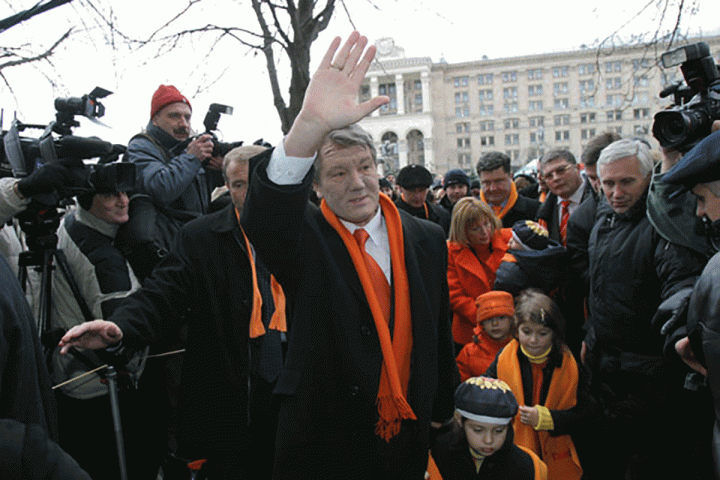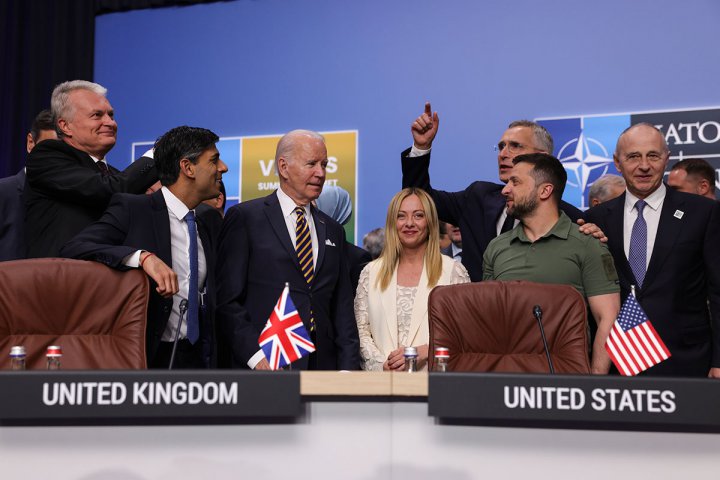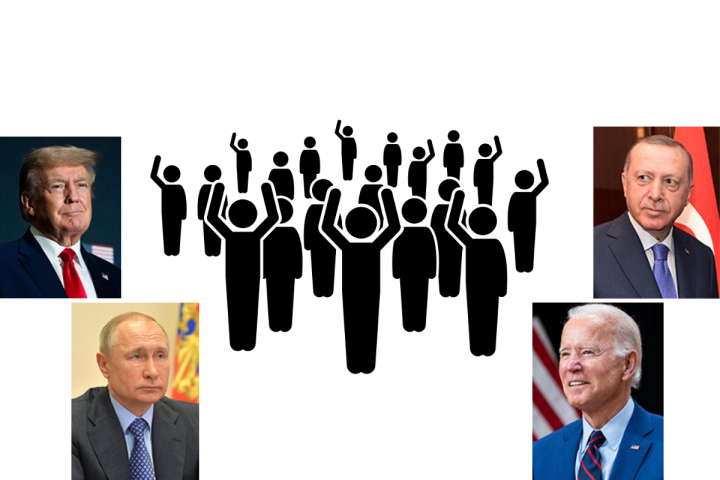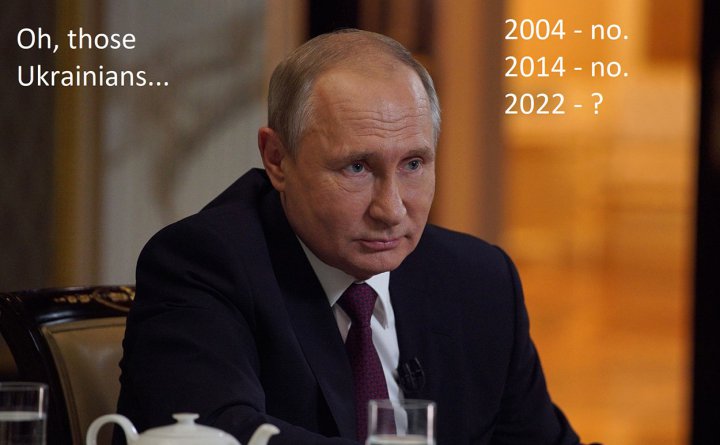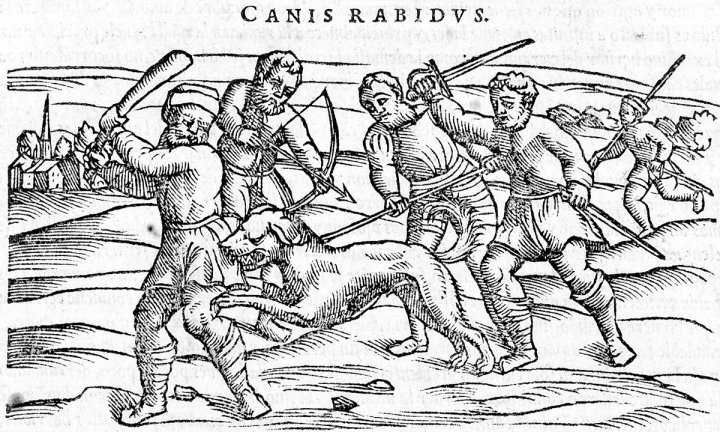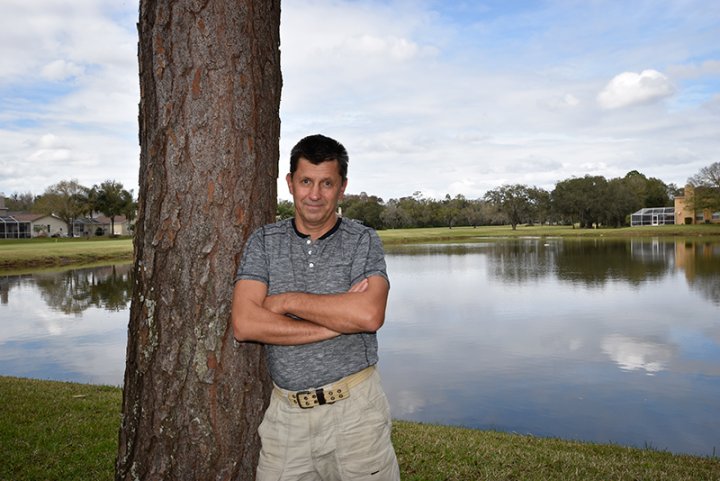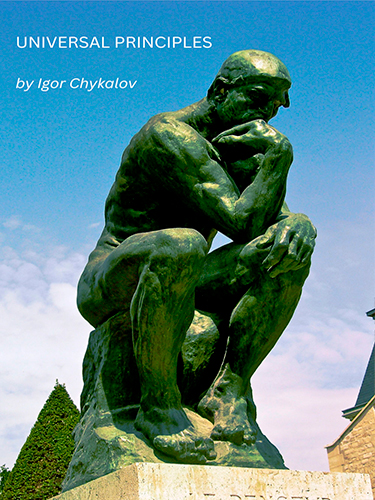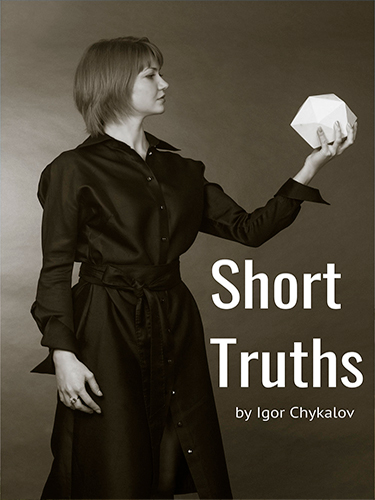Hopeless Ukraine (part 3, excerpt)
A lesson of the Orange Revolution: national leaders are normal people and they don't necessarily know what the country needs, but they always pretend they do. Don’t make idols of them.
Viktor Yushchenko in 2004.
Image by anonymus /Wikimedia Commons
Ukraine has somehow stabilized the economy and after 2000 the country enjoyed steady real economic growth averaging about seven percent annually for almost a decade due to 50% growth of exports between 2000 and 2008 (metals, metallurgy, engineering, chemicals, and food. Between 2001 and 2008, metals and chemicals prices boomed because of fast international economic growth, while the price of natural gas imported from Russia remained relatively low.
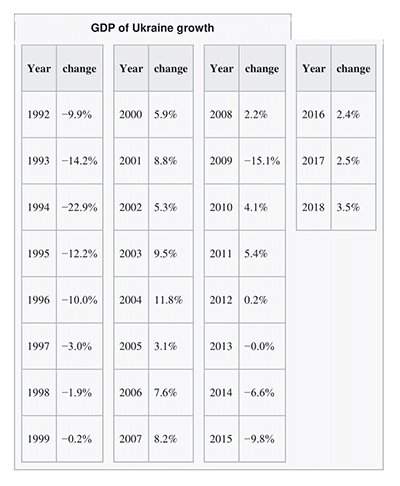
Image from Wikipedia.org
However, most of money earned by Ukrainians was traditionally pocketed by Ukrainian authorities, and the people did not live better. On the contrary, the country kept on getting poorer and the Ukrainians began to rapidly degrade morally in 2000s - the authorities and power structures lied much and misappropriated large chunks of Ukraine (money, land, plants, mines, mass media, real estate). Ukrainian people closed their eyes to that.
Under Mr. Kuchma’s second term of presidency (1999-2004) and on the trade in government positions imperceptibly flourished. Anyone could be appointed to almost any public office if he/she was willing to pay enough money for it. For example, Viktor Yanukovych, a former criminal with two criminal convictions was appointed to the post of Prime Minister of Ukraine by President Kuchma in 2002. For justice' sake it’s needed to say that Mr. Yanukovych hasn’t started from the scratch – before that he was appointed a governor of Donetsk province in 1997 by the same President Kuchma.
……….
You have read an excerpt from the article. The complete series of articles "Hopeless Ukraine" will be available for purchase as a separate book on my website becomethyself.com in a while.
Comment
✚ Add comment
